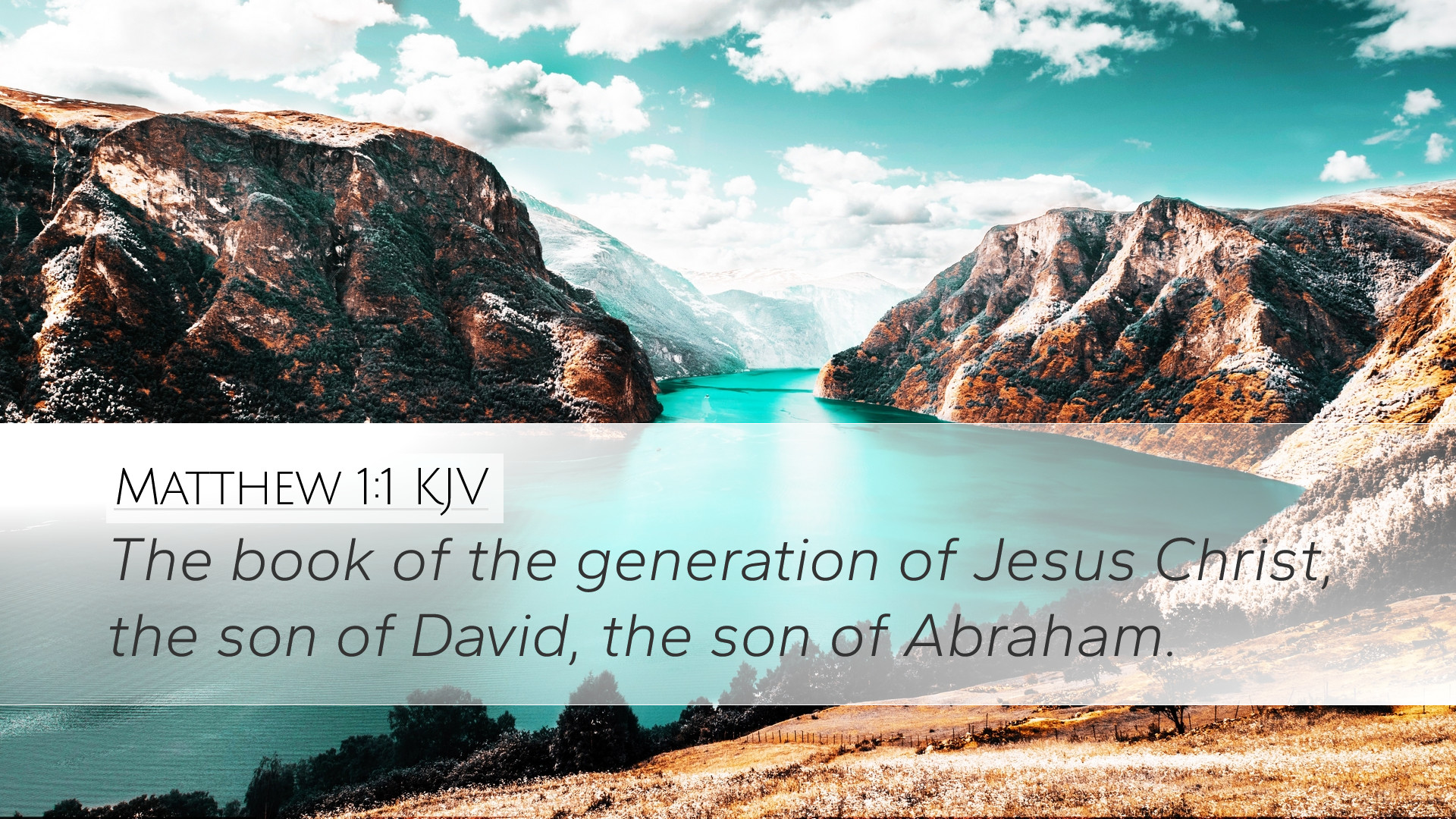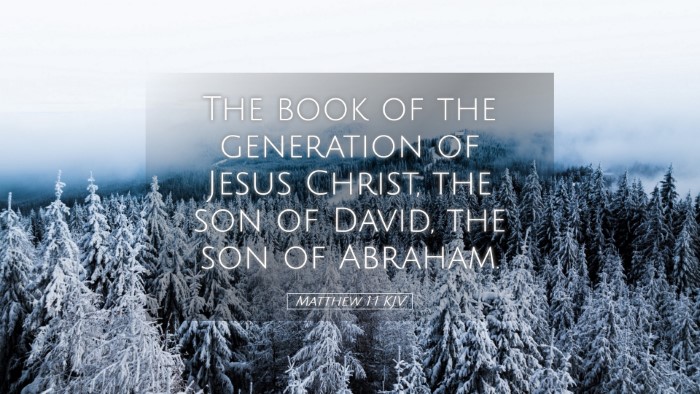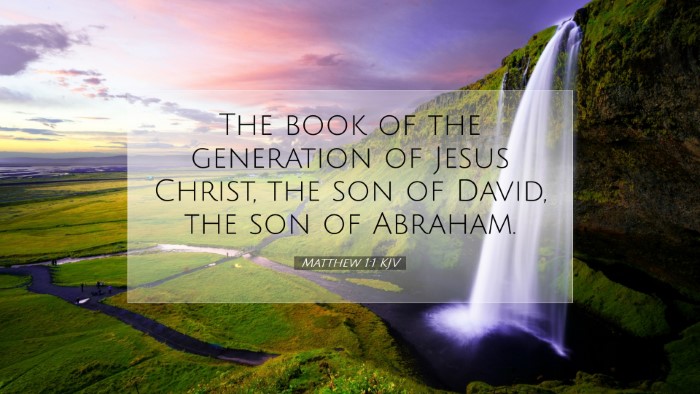Bible Commentary on Matthew 1:1
Verse Overview: Matthew 1:1 states, "The book of the generation of Jesus Christ, the son of David, the son of Abraham." This verse serves as the introduction to the Gospel of Matthew, framing the earthly lineage of Jesus and establishing His rightful place in the history of Israel.
Contextual Significance
This introductory verse is not merely a title but a profound declaration of Jesus' identity and purpose. It emphasizes two pivotal figures in Jewish tradition: David and Abraham, situating Jesus within the covenant promises made to Israel.
David's Significance
- Messianic Lineage: By linking Jesus to David, Matthew highlights Christ as the fulfillment of the promises made to David, particularly regarding the eternal kingdom (2 Samuel 7:12-16).
- Royal Heritage: The phrase "the son of David" underscores Jesus' kingship, portraying Him as the anticipated Messiah who would reign over Israel and, ultimately, the world.
Abraham's Role
- Covenantal Promises: Referencing Abraham connects Jesus to the Abrahamic covenant (Genesis 12:1-3), reinforcing the idea that Jesus is the catalyst through whom all nations will be blessed.
- Faith and Righteousness: Abraham is a model of faith, and in mentioning him, Matthew points to the necessity of faith in Christ as the basis for righteousness (Romans 4).
Theological Implications
This genealogy underscores the continuity of God's redemptive plan throughout history. Jesus is not an abrupt new beginning but rather the culmination of centuries of divine promise and prophecy. Matthew's intent is to present Jesus as the continuity of God's work with humanity, solidifying the connection between the Old and New Testaments.
Genealogical Structure
Matthew’s genealogy in the following verses (Matthew 1:2-16) traces the lineage from Abraham to Jesus, which can be broken down into three distinct sections, each going through fourteen generations. This structured approach signifies order and divine sovereignty in history.
Inclusivity of the Gospel
The genealogy also includes women, such as Tamar, Rahab, Ruth, and Bathsheba, which underscores the inclusiveness of Jesus’ mission. This foreshadows the broader reach of the gospel, transcending cultural and societal boundaries.
Reflections from Commentaries
Matthew Henry
Matthew Henry expounds that this verse signifies the fulfillment of Old Testament prophecy and accentuates the importance of Christ’s lineage. He emphasizes that this introduction was essential to prove that Jesus was indeed the promised Messiah.
Albert Barnes
Albert Barnes points to the importance of "the generation of Jesus Christ” as a meaningful phrase that encompasses all of Christ’s earthly existence. He notes that by stating Jesus' lineage, Matthew aims to reassure the Jewish audience regarding Jesus’ qualifications as their Messiah.
Adam Clarke
Adam Clarke reflects on the phrase "the son of David," interpreting it as a critical recognition of Jesus as the inheritor of the royal line. He elaborates on the importance of genealogy in Jewish culture, demonstrating how it establishes legitimacy and authority.
Application for Believers
For contemporary Christians, Matthew 1:1 reaffirms faith in Jesus as the Messiah. As pastors and theologians engage with this text, they are reminded of the historical and covenantal context of the Gospel message. This offers a robust foundation for preaching and teaching, emphasizing God’s faithfulness through the ages.
Calling to Evangelism
Understanding Jesus' roots in the lineage of David and Abraham compels believers to share the story of Christ with others, inviting them into the narrative of redemption that spans generations.
Encouragement in Trials
The genealogy underscores that God’s plans unfold over time, often through trials and tribulations. This should encourage believers to trust in God's timing and sovereignty in their own lives.
Conclusion
Matthew 1:1 is a profound introduction that roots Jesus in history and highlights His role as the Savior. By understanding this verse in light of its Old Testament foundations, believers are better equipped to appreciate the depth of God’s redemptive work through Christ.
Let us approach the rest of the Gospel with the awareness that Jesus is the culmination of God’s promises, the fulfillment of prophecy, and the embodiment of hope for all humanity.


